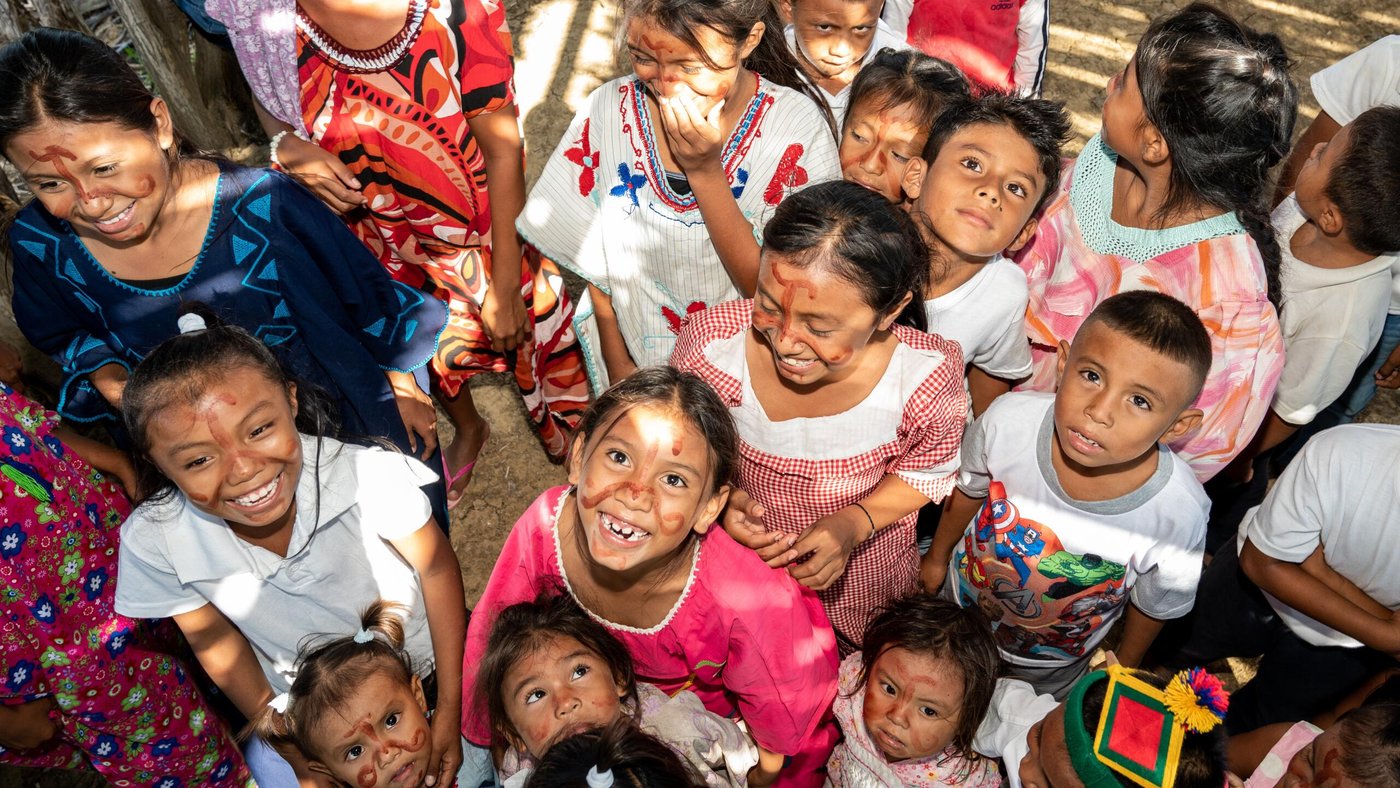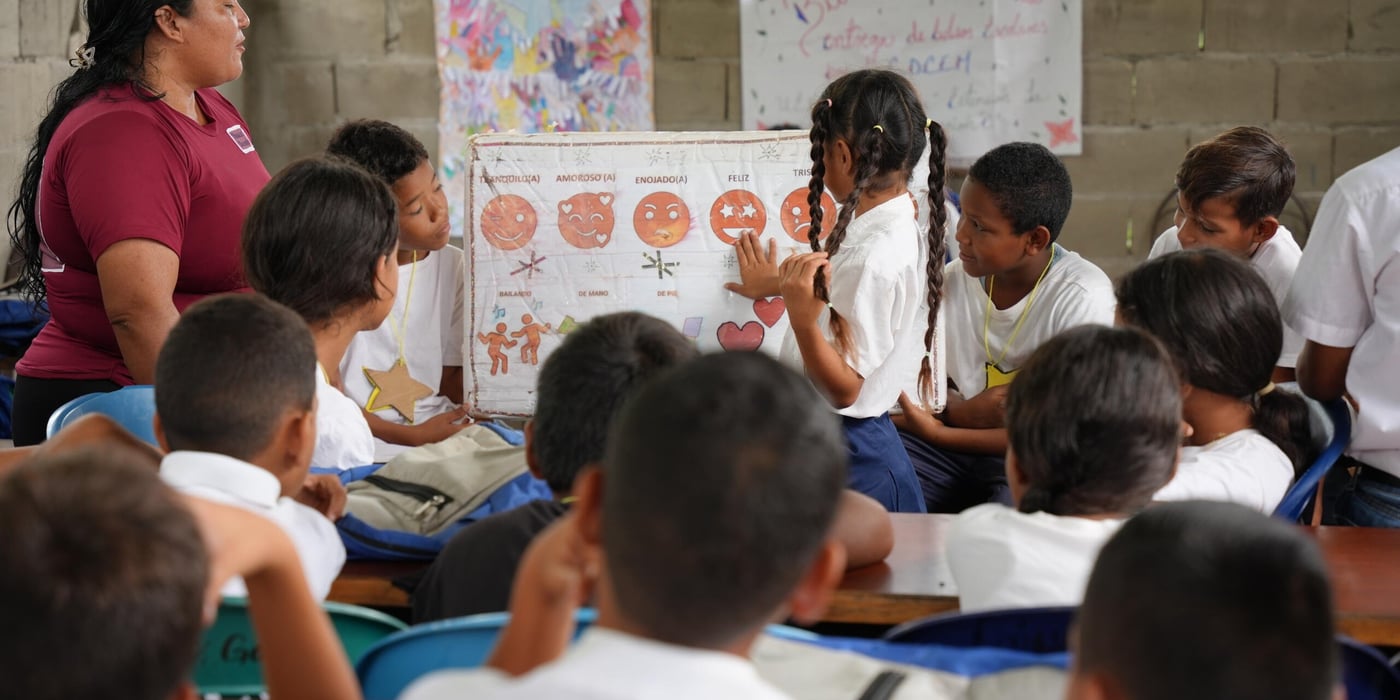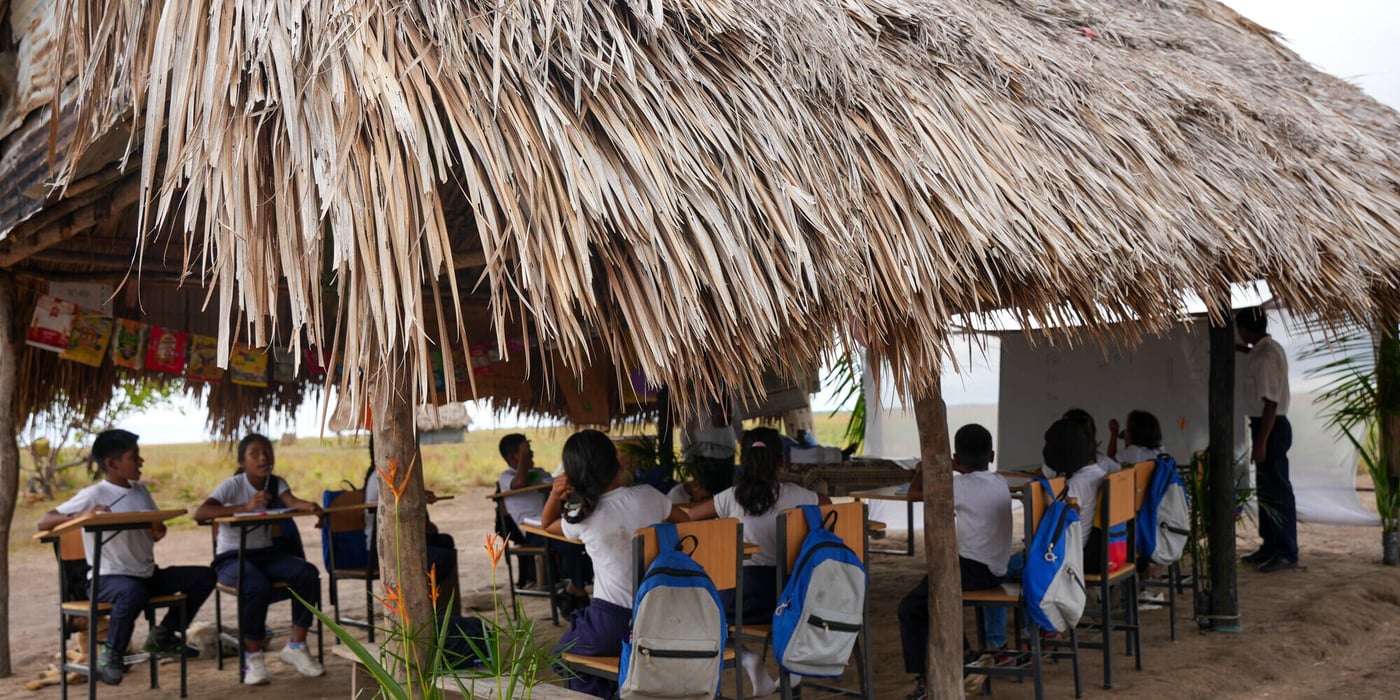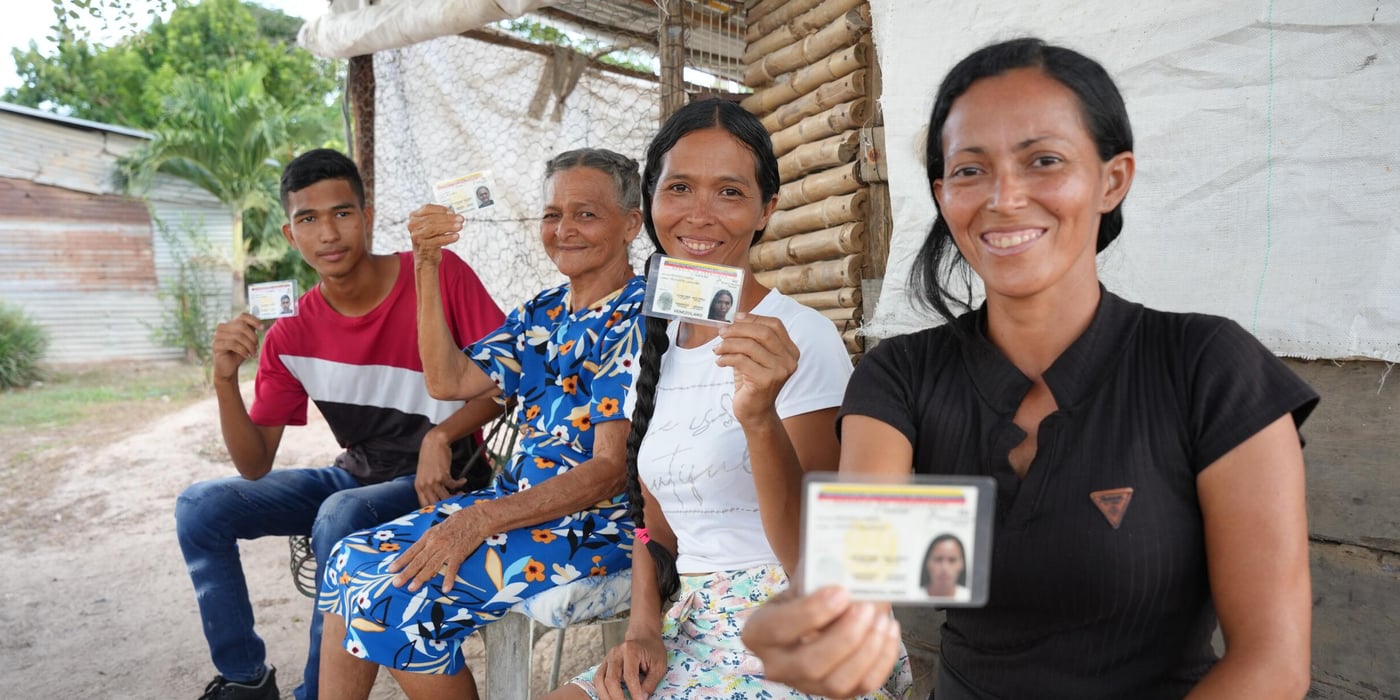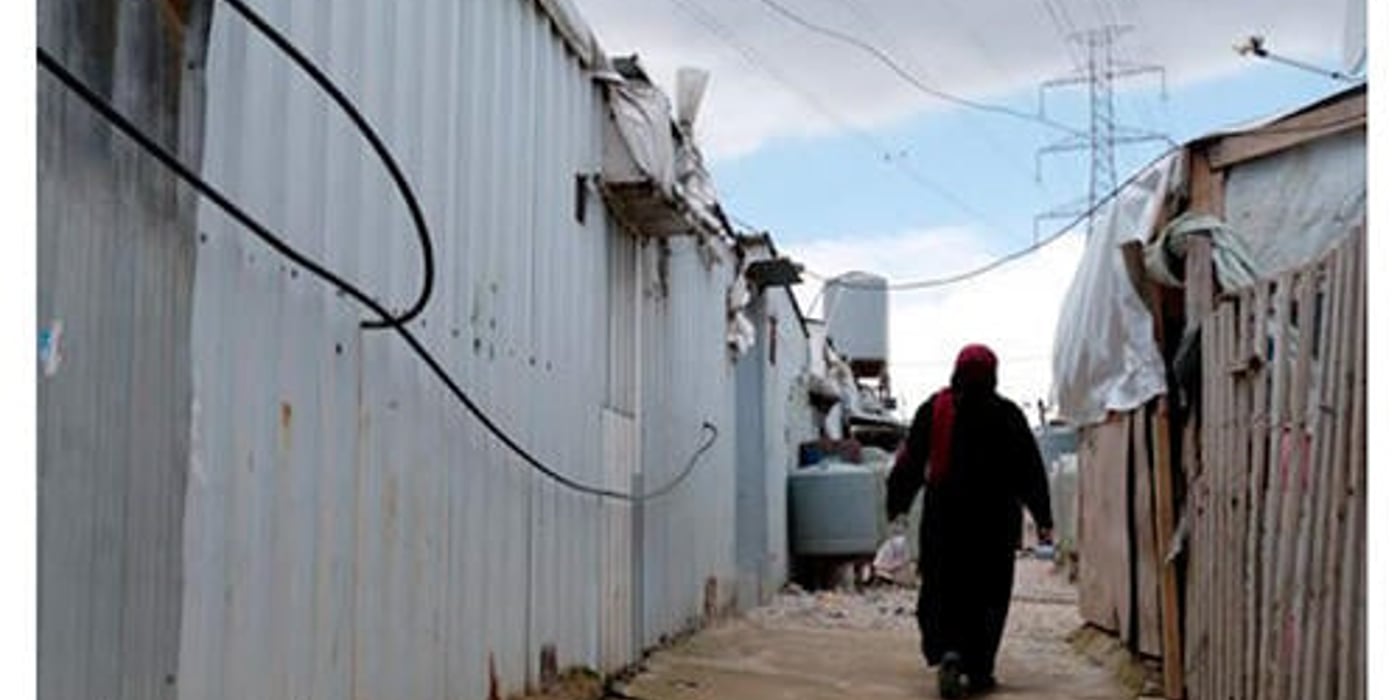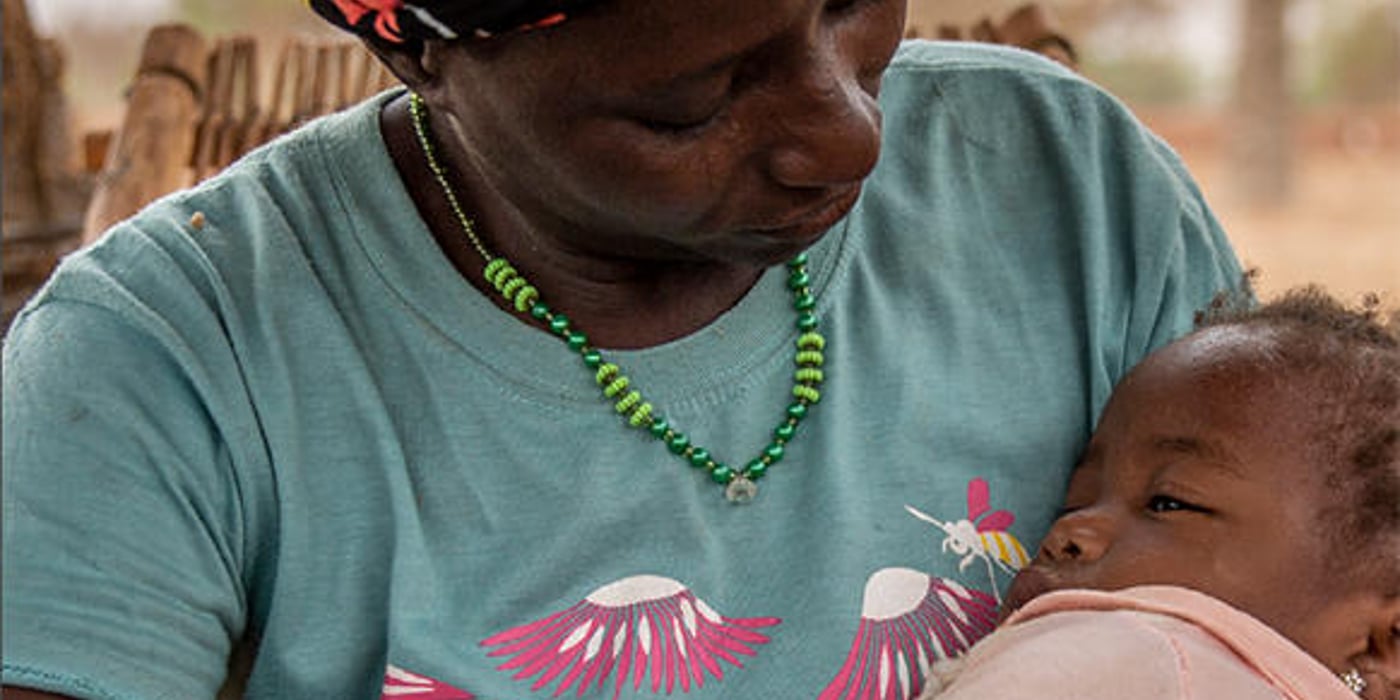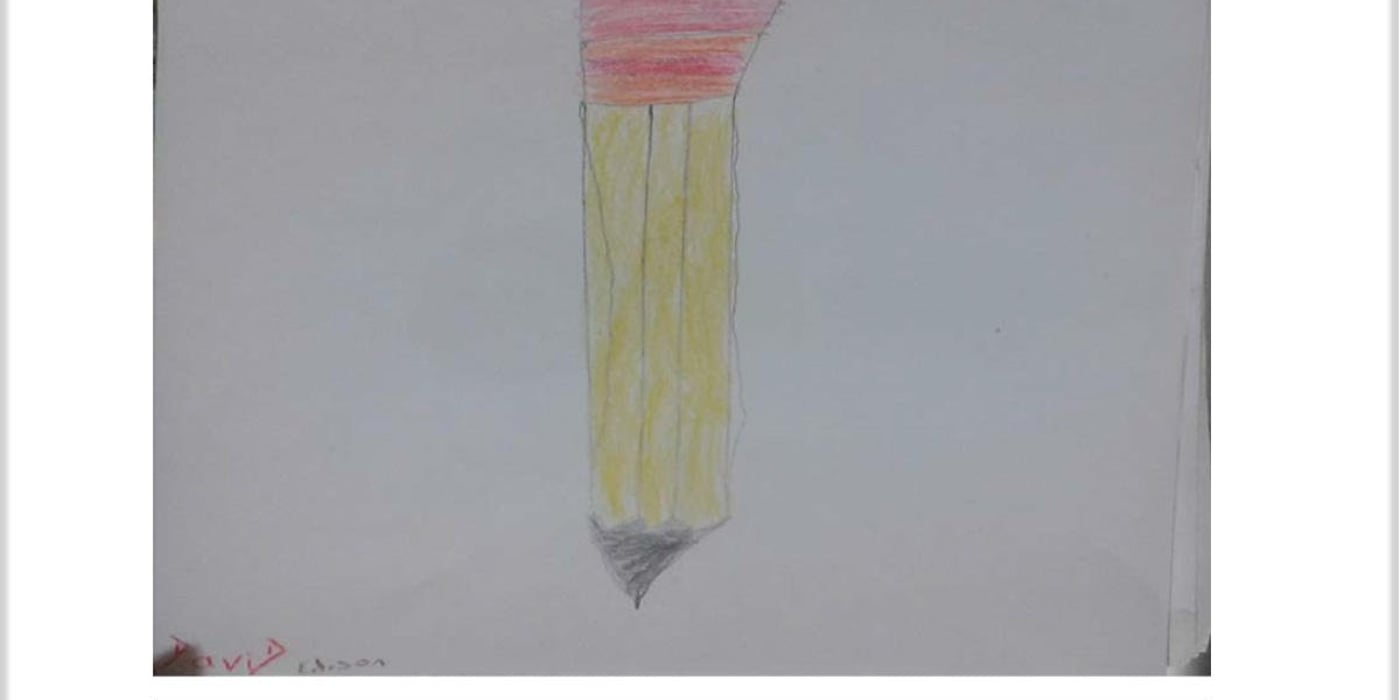Despite the scale of the problem, there’s little funding for Venezuela from the international community. The Norwegian Refugee Council (NRC) is doing all it can – helping to provide food and access to clean water, as well as education and legal support.
What’s happening in Venezuela?
For years, Venezuela has faced major political, social and economic issues – including challenges with access to public services and problems caused by sanctions. Since the crisis, people have also had fewer livelihood opportunities.
As a result, millions of people have either left Venezuela or been forced to migrate internally. Many lack important documentation like birth certificates and identity cards, which means it’s hard for them to access basic rights and services in their new communities. Those on the move are at higher risk of violence, exploitation and abuse. And more than two million children and young people are unable to access education.
Our response
We’re working with our partners in the following areas:
- Water, sanitation and hygiene – delivering household hygiene kits, as well as installing and renovating water and sanitation facilities in schools and local communities.
- Livelihoods and food security – delivering complimentary food assistance and providing tools, seeds and training, so people can cultivate community and school gardens.
- Education – helping children access schooling, distributing learning materials, and working with teachers to provide complimentary training tools and vital psychosocial support.
- Protection – providing protection services to keep people safe and working with communities to help them recover from violence.
- Information, counselling and legal assistance – helping people access legal identity documentation and providing individual counselling services.
Our operations
NRC office established: 2005
Areas of operation: Caracas (Country Office); Táchira, Zulia, Bolívar, Apure
Country Director: Elena Vicario
Contact: nrc.venezuela@nrc.no
Our impact
In 2024, we assisted 132,613 people through our programmes in Venezuela:
-
13,488Education
-
26,161Livelihoods and food security
-
2,795Shelter and settlements
-
974Protection from violence
-
11,046Information, counselling and legal assistance
-
93,735Water, sanitation and hygiene
-
4,812Other activities
Note: some people received more than one type of assistance.


